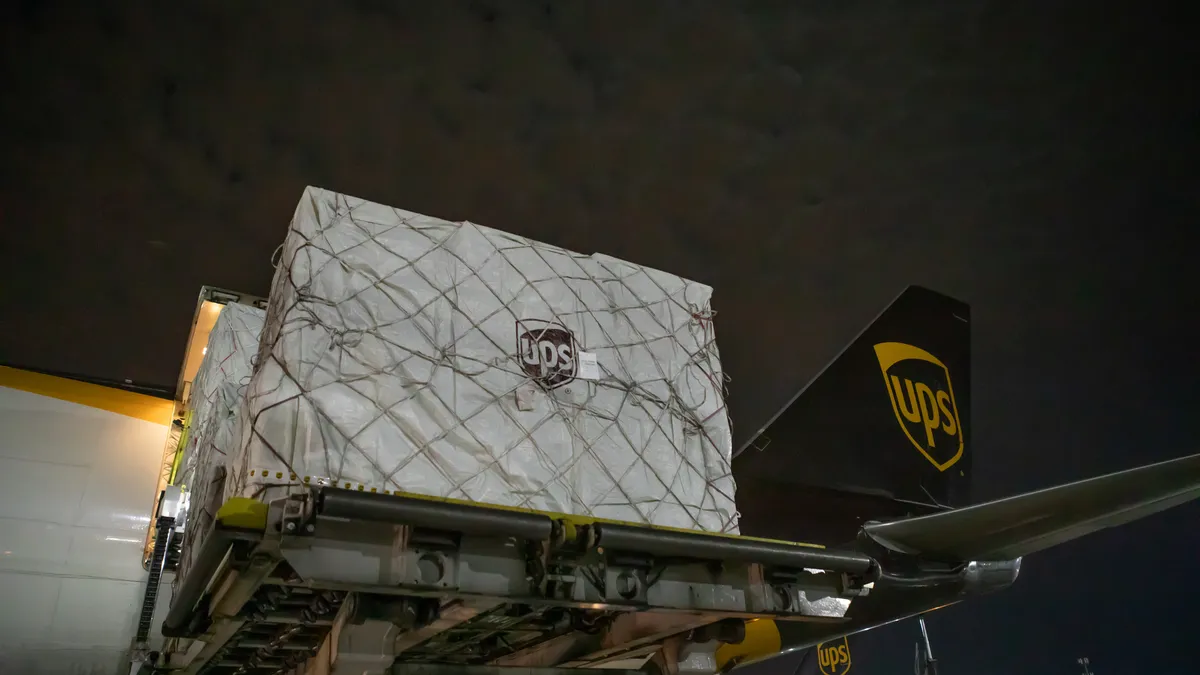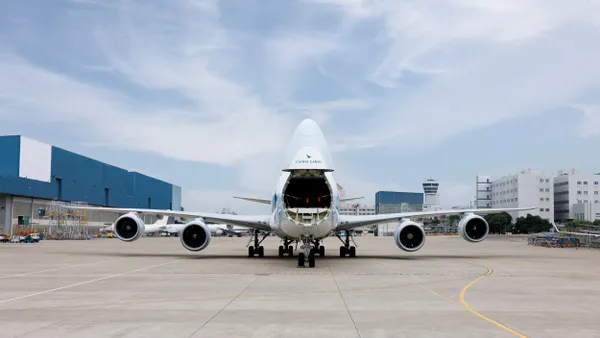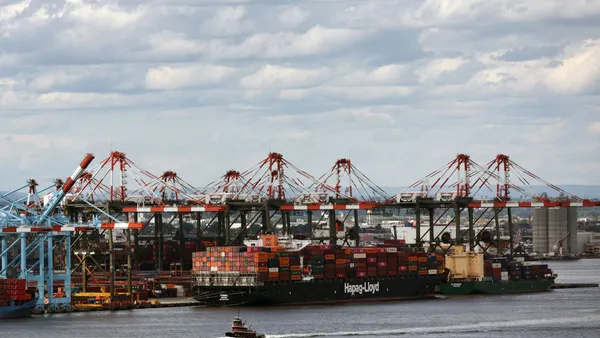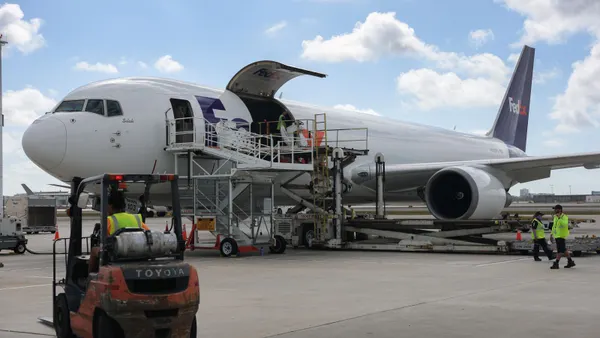Dive Brief:
- UPS is growing the physical footprint of its healthcare division with new or expanded facilities in California, Hungary, Shanghai, the United Kingdom and at the UPS Worldport in Kentucky, the company said in a press release shared with Supply Chain Dive.
- The new assets will include current good manufacturing practice-compliant distribution space with 1.5 million square feet in Southern California and a new location in Shanghai. New freezer storage in Louisville, Kentucky, will provide space for vaccine and biopharma supply storage.
- "About a month ago, we made the decision to pivot quickly to ... vaccines and treatments, which is where we're really focusing right now because that's the next wave of what's happening," UPS Healthcare President Wes Wheeler said in an interview with Supply Chain Dive.
Dive Insight:
Last month, the federal government announced "Operation Warp Speed," with the goal of having an "effective vaccine available for Americans by January 2021," according to a Department of Health and Human Services press release.
UPS is working "with all of the major players that are developing vaccines, with the exception of only a few, and we're working with the major companies that are developing treatments," Wheeler said. UPS subsidiary Marken is providing the companies with supply chain services to help clinical trials. To do so, Marken has had to relearn how to manage clinical supply chains during a pandemic. It now has to get drugs to patient's homes, because clinic sites are closed around the world. To do this, it relies on third-party carriers that it has certified.
UPS gets involved with the companies when vaccine testing moves from phase one to phase two, which is when the drug is tested in infected patients. There are about three companies this far along in the development of a vaccine to protect against the new coronavirus, Wheeler said.
The supply chain for the vaccine involves UPS helping manufacturers move the active ingredient from supplier locations to their factories where the liquid is placed in vials, which are then packaged and shipped to dosing sites around the country.
"Our next priority will be to pivot from there to commercial distribution," Wheeler said. "And many of these vaccines will be shipped and stored in sub-frozen conditions, maybes as low as minus 80 degrees [Celsius]."
There are three main temperature ranges when talking about cold storage. Two to eight degrees Celsius and minus 20 degrees Celsius can be maintained with special packaging that will maintain those temperatures for 96 hours even outside of a refrigerated location. But minus 80 degrees Celsius requires dry ice, "the only real effective way to transport that kind of material," Wheeler said.
The shift to vaccines is just the most recent priority change for UPS' healthcare division. When Wheeler started as the head of the division in December, the coronavirus was not on the company's priority list. But priorities changed quickly.
UPS had its team in place at the new Healthcare and Life Sciences unit by the end of January. By early February it started to get its "first clue" of how its mission was going to change, and by mid-February Wheeler's time was consumed by Zoom calls connecting with people in Washington, healthcare labs, test kit companies, and charter flights.
"It hasn't really stopped since then," Wheeler said.
Before the pandemic took hold, the Healthcare and Life Sciences unit was just a few months old and focused on building a portfolio of services built on a quality system similar to what might be found at a large biopharmaceutical company like Novartis or Merck, as well as on its UPS Premier product and the clinical work done at Marken.
"That was our plan," Wheeler said. "And then all this happened. And we had to kind of step back and respond every single day to another phone call from another governor or city mayor or hospital system looking for [personal protective equipment], looking for test kits, help connecting laboratories with test kit companies. We spent a lot of time with public affairs in Washington, trying to help states and cities."
The unit has helped to arrange 200 charter flights from China bringing in 5,000 tons of personal protective equipment (PPE ) into the United States, and its Louisville location is being used to store goods for the National Stockpile.
About a month ago, about 100% of the new unit's resources were dedicated to responding to the pandemic. "In the last month, we've seen an easing of that that allows us to spend a little more of our time on strategy," Wheeler said. Wheeler and his team will present their strategy for growth to UPS' new CEO, Carol Tomé, "in about three weeks time," Wheeler said Friday.















